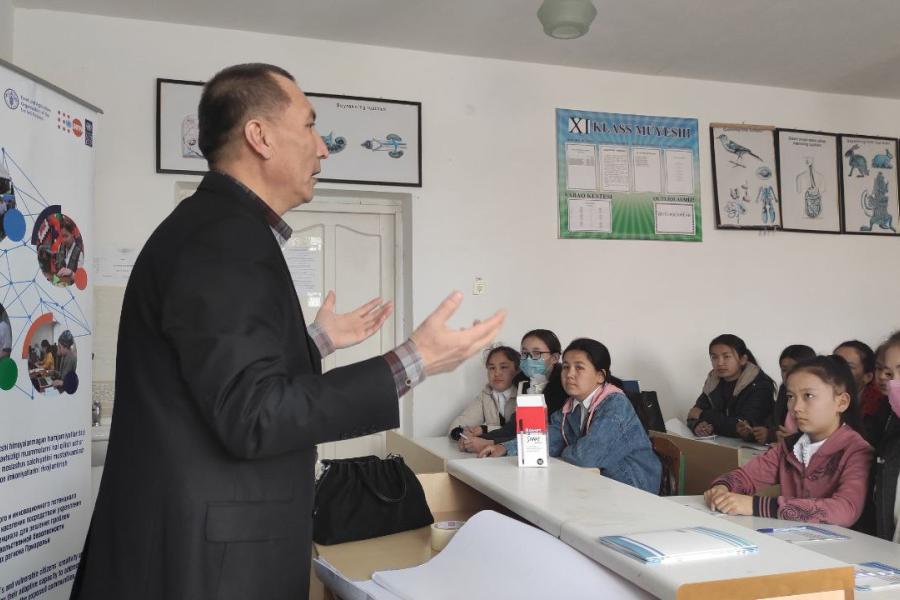Improving health and learning through better water, sanitation and hygiene in Karakalpakstan
12 April 2022
510 schoolchildren received access to drinking water and 500 residents of the Bozatau, Karauzyak and Kungrad districts were trained on water supply, sanitation and hygiene.
The needs assessment held by UNDP in 2021 among the residents of pilot communities in Bozatau district, revealed the lack of water supply in two local schools where 510 people study and work.
Thus with the financial support of the UN Multi-Partner Human Security Trust Fund for the Aral Sea region in Uzbekistan, UNDP, UNFPA and FAO Joint Programme on "Unleashing young people’s and vulnerable citizens’ creativity and innovation by strengthening their adaptive capacity to address the economic and food insecurities in the exposed communities of the Aral Sea region", has constructed the water supply networks improving the sanitary and hygienic conditions of pilot schools in the district. Sewerage has been carried out in both buildings, washbasins, taps, and water heaters operating from solar energy have been installed and now both cold and hot water is supplied here, which is important in the harsh winters of the region.

The target population of the district was also trained on water supply, sanitation, and hygiene to raise awareness of community residents about health-related issues and promote a healthy lifestyle as hand washing is considered one of most effective ways to stay protected from various infections, including COVID-19.
In general, 500 residents of the Bozatau, Karauzyak and Kungrad districts of Karakalpakstan were trained on water, sanitation and hygiene through 7 workshops, both for school children and adults. In working with adults, organizational support was provided by another UNDP and UNFPA Joint Programme on "Building the resilience of local communities against health, environmental and economic insecurities caused by environmental destruction in the Aral Sea region" funded by the Government of Japan.
It is expected that the new knowledge and opportunities provided to the communities of the pilot districts will help to avoid the spread of various infections and prevent outbreaks of new epidemics associated with unfavorable sanitation and hygiene conditions in rural areas.



